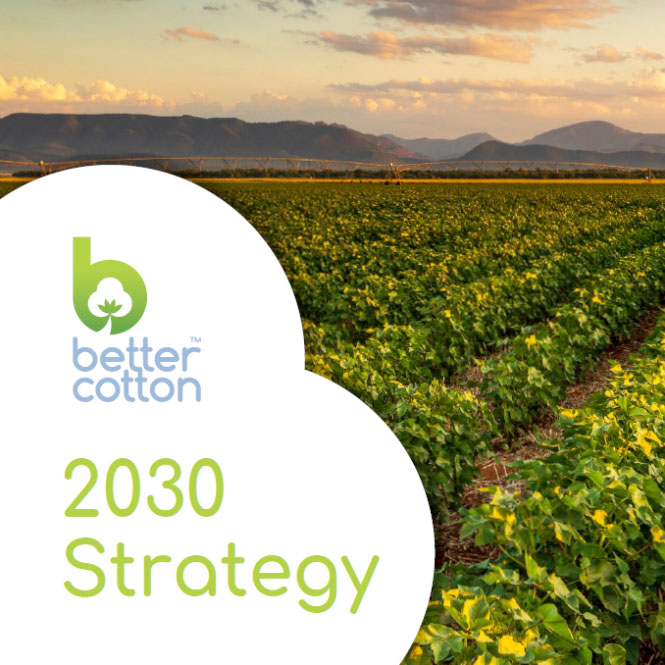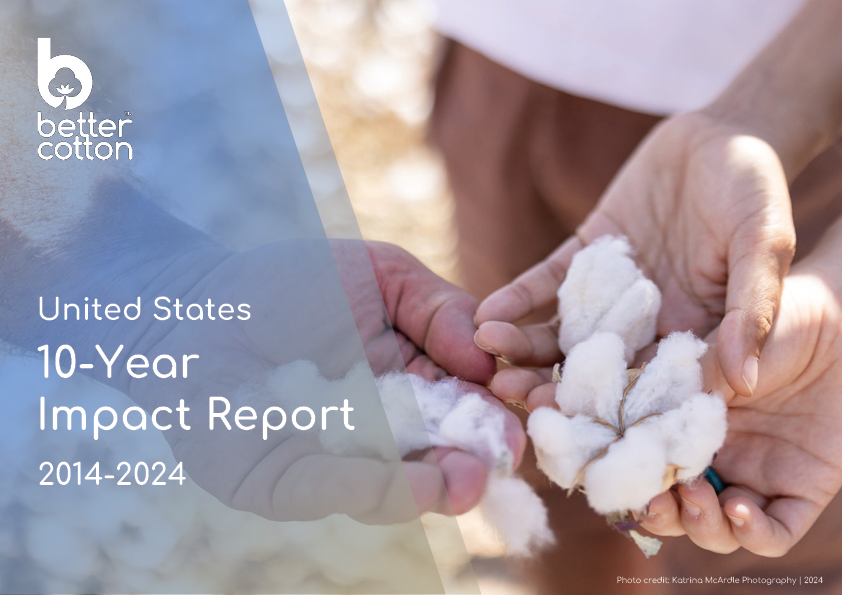- Who we are
- What we do
In just over 10 years we have become the world’s largest cotton sustainability programme. Our mission: to help cotton communities survive and thrive, while protecting and restoring the environment.
- Where we grow
Better Cotton is grown in 22 countries around the world and accounts for 22% of global cotton production. In the 2022-23 cotton season, 2.13 million licensed Better Cotton Farmers grew 5.47 million tonnes of Better Cotton.
- Our impact
- Membership
Today Better Cotton has more than 2,700 members, reflecting the breadth and diversity of the industry. Members of a global community that understands the mutual benefits of sustainable cotton farming. The moment you join, you become part of this too.
- Associate Membership
- Civil Society Membership
- Producer Organisation Membership
- Retailer and Brand Membership
- Supplier and Manufacturer Membership
- Find Members
- Member Monitoring
- Better Cotton Platform
- myBetterCotton
- Resources – Better Cotton Conference 2022
- Complaints
- Whistleblowing
- Safeguarding
- Get Involved in the Better Cotton Programme
- Thank you for contacting us
- Better Cotton’s Data Privacy Policy
- Log in
- Members’ Area
- Request for Proposals
- Better Cotton Cookie Policy
- Web Reference
- Measuring Cotton Consumption
- How to Implement the Chain of Custody Standard
- Resources – Better Cotton Conference 2023
- Certification Bodies Old
- Latest
- Sourcing
- Latest
The founding premise of Better Cotton is that a healthy sustainable future for cotton and the people that farm it is in the interests of everyone connected with it.
Let us help you find what you’re looking for
Results for {phrase} ({results_count} of {results_count_total})Displaying {results_count} results of {results_count_total}
The Better Cotton Initiative (BCI)works with on-the-ground partners totrain millions of cotton farmers around the world, supporting them to implement more sustainable farming practices which protect and restore the environment, while also improving their livelihoods. To ensure our programmesare making a difference, we arecommitted to measuring sustainability improvements everywhere Better Cotton is grown and to evaluating the environmental, social and economic impact of theBetter Cotton Standard System.
Measuring the numbers of farmers participating in projects and meeting the Better Cotton Standard, or the volumes of Better Cotton licensed, is important but it is not enough for us to know to what extent we as a multi-stakeholder-driven sustainability standard are contributing to cotton production becoming more sustainable. We need more.
That is whyBCIalsoseeks to measure the change cotton farmers achieve in a diverse set of contexts, from smallholders with limited access to machinery to the most technologically advanced farming operation. BCI’s data-drivenMonitoring, Evaluation and LearningProgrammefocuses on farm-level results, aiming to measure what matters most according to ourTheory of Change: continuous improvement of environmental, social, and economic conditions in cotton cultivation.
To do this,weuse complementary research and evaluation methods and work with independent organisations and researchers to assess the field-levelresults andimpacts of the BCI programmes.No single approach or methodology can meet all the needs for understanding the reach, efficiency, results, and ultimately impact, of a sustainability initiative.BCI’sdiversity of approaches is necessary to effectively measure results and impactboth at scale and in depth.
Programme-wide monitoring
BCI and BCI’s field-level partnerscollect information about BCI’s global reach–dataincludesthenumber of farmers reached and trained,thearea under Better Cotton cultivation, and volumes of Better Cotton grown.The outcomes help to monitor BCI’s progress towards its organisational targets.
Sampled monitoring
This involves the assessment of socioeconomic and environmental outcomes of BCI Farmers to create an annual snapshot. Quantitative data on agronomic (water, pesticide, fertiliser use) and economic (yield, profitability) results are collected from BCI Farmers each cotton season, and when available, data from non-BCI, or “Comparison Farmers’, is also collected. The outcomes determine to what extent BCI training and support is leading to improved farming practices.
Research
Research consists of impact evaluations and in–depth studies tounderstand whether positive change is occurring at field level and toanalyse the potential and real impact of BCI programmes on specific issues and in targeted geographies.Research could be carried out by third-party researchers, independent organisations, universities or BCI.
Partnerships
BCI also partners with other sustainability standards and organisations to support alignment on common metrics, including measuring progress toward the Sustainable Development Goals, especially focused onsustainable agricultural production. For example, in 2019,theDelta Projectwas developed together withBCI, theGlobal Coffee Platform, the International Cotton Advisory Committee and the International Coffee Association, in order to bridge the gap in measuring and reporting sustainability performance intwo of the most important commodity sectors, cotton and coffee.
Access new infographics that visualise BCI’s approach to assessing field-level results and impact.


